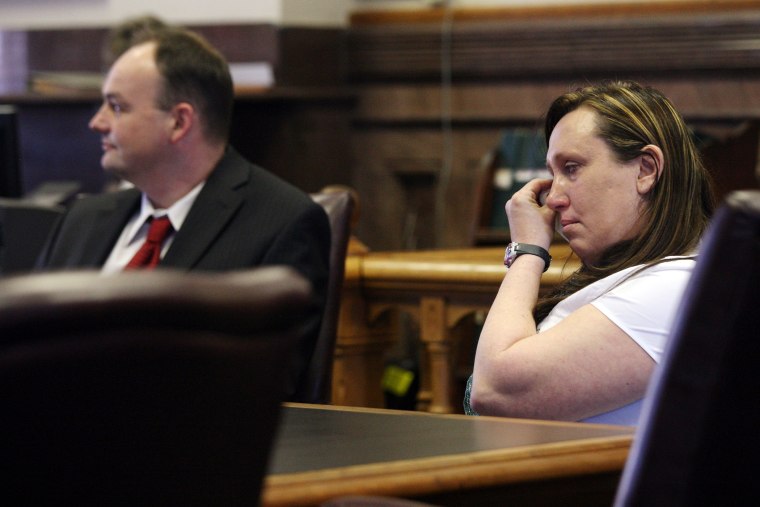Iowa’s highest court heard a case Wednesday that could restore voting rights to around 20,000 former felons. The Hawkeye state is the latest battleground in a nationwide push to weaken or end state bans on felon voting, which disenfranchise nearly 6 million Americans, disproportionately African-Americans.
Iowa is one of just three states—Florida and Kentucky are the others—that make former felons complete a lengthy application process to get their right to vote back, with the final decision up to the governor.
“Excluding someone from the democratic process for life is obviously problematic,” Julie Ebenstein, a voting rights lawyer with the ACLU, which brought the case, said shortly after oral arguments. She said her side hopes for a decision in time for former felons to be able to register and vote in this year’s election.
The plaintiff in the case, Kelli Griffin of Montrose, Iowa, was convicted of a drug-related offense in 2008. Upon completing her probation, Griffin, a mother of four, voted in a local election—she brought her kids with her, to teach them about the democratic process—only to be arrested soon after and charged in connection with illegal voting. The arrest was part of an aggressive probe into voter fraud by then-secretary of state Matt Schultz, a Republican, which led to charges against eight others.
Griffin’s confusion over her rights was understandable. In 2005, Iowa’s governor at the time, Democrat Tom Vilsack, issued an order restoring voting rights to felons who had completed their sentences. But in 2011, Gov. Terry Branstad, a Republican, came into office and on his first day, rescinded Vilsack’s order. Griffin testified at her trial that she was wasn’t aware of the rule change, and a jury acquitted her.
A friend-of-the-court brief tells the story of another Iowan disenfranchised by the ban: 65-year-old Andy Hartman, a Vietnam War veteran convicted in 2009 of felony marijuana possession.
As of mid-January, Branstad had approved the restoration of voting rights for just 82 Iowans in five years.
At issue in the case is the Iowa Constitution’s ban on voting by those convicted of “infamous crimes.” Until recently, that’s been interpreted to mean any felony, and some misdemeanors. But in a 2014 case challenging the eligibility for office of a state senate candidate who had been convicted of a drunk driving offense, three justices on the state Supreme Court suggested that the court should reconsider that view.
Chief Justice Mark Kady wrote that in his view, the crime must be “particularly serious” and must “undermine the process of democratic governance through elections” to qualify as infamous. Two other justices on the seven-member court signed on to that view. One justice, Brent Appel, was recused from that case.
If a four-person majority of the court backs that approach in Griffin’s case, it would likely mean that the vast majority of felons would be eligible to vote once they complete parole.
That would make Iowa just the latest state to loosen its ban on felon voting. Last month, Maryland lawmakers overrode a veto by the governor to approve a bill that restores voting rights for those who have served their sentences. Kentucky has begun a process that will likely lead to a relaxing of its law. And there are even grassroots efforts underway in Florida, whose lifetime ban on felon voting, reinstated under Gov. Rick Scott, keeps nearly one in four black men from the polls.
